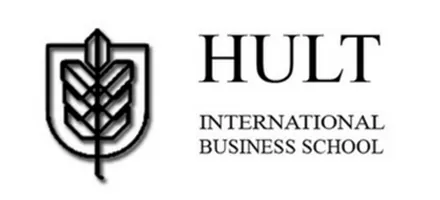
Google might not be the best employer for recent grads, according to new data mined from a jobs and career platform. Courtesy photo
It’s no longer a Wall Street world for elite business schools. Increasingly, consulting and technology firms are getting a piece of the talent pie. And they might be the better options for young business-minded talent.
According to data compiled through the Transparent Career platform, the best company for recent graduates to work for right now is Microsoft. These sorts of rankings and data often lift Google or one of the big consulting firms to the top. But the revolutionary Redmond, Washington-based tech company founded by Bill Gates and Paul Allen scored well across the three data points used to compile the list: average total compensation packages, average job satisfaction, and hours worked per week. Microsoft’s rise to the top was further buoyed by a massive average total compensation package of $150,500, which is $15,000 higher than the second-highest total compensation of $135,500 at the Boston Consulting Group (BCG). Microsoft also boasted one of the higher job satisfaction rates with a 7.2 (out of 10), and employees at Microsoft also reported working an average of 51 hours per week, which placed the tech giant toward the lower end, earning it more points in the overall ranking.
Transparent Career is a business-focused Glassdoor founded by a team of MBAs at Chicago’s Booth School of Business. The data used to compile the results was self-reported by more than 1,000 recent graduates, mostly business majors, and includes jobs one to three years after graduation. Companies with at least 20 data points were included, which ended up totaling 26. After compiling the data, Transparent Career weighted average total compensation by 50%, job satisfaction by 40%, and average hours worked per week by 10%.
RANKINGS ALIGN WITH WHAT B-SCHOOLS ARE SEEING
Following Microsoft was BCG, Google, Bain and Company, and Amazon, respectively. Of the top five, none was a bank and only two were consulting firms. Capital One is the first financial services firm to make the list, in sixth place, while Liberty Mutual Group and Goldman Sachs both squeezed into the top 10 at ninth and 10th, respectively. BCG, Google, and Bain all were propelled toward the top with high average salaries and job satisfaction rates.
“Nothing really jumps out at me as being surprising on this,” says David Vogel, director of career development and employee relations for the undergraduate program at the University of North Carolina’s Kenan-Flagler Business School.
“Nothing was shocking,” agreed Mark Sorenson-Wagner, director of the Undergraduate Business Career Center at the University of Minnesota’s Carlson School of Management.
Both Kenan-Flagler and Carlson send large percentages of their graduating classes into financial services and consulting. Last year at Carlson, it was 25% combined, while 43% to 49% of Kenan-Flagler graduates recently entered investment banking or consulting as functions. According to Rebecca Cassidy, Georgetown University’s senior assistant dean and director of professional and leadership development, the percentages are high among graduating students from the McDonough School of Business, as well: some 53% of last year’s class entered financial services.

David Vogel of UNC Kenan-Flagler. Courtesy photo
‘THERE IS KIND OF THIS BADGE OF HONOR’ FOR WORKING ‘100 HOURS A WEEK’
Despite having some of the highest average work hours per week, both financial services and consulting continue to be popular areas among business students. According to the Transparent Career data, recent graduates work an average of more than 60 hours a week at JP Morgan Chase & Company, Goldman Sachs, Bain, Citigroup, BCG, and McKinsey. The only other organizations where recent grads report working at least 60 hours a week are the U.S. Army and Schlumberger, a Houston-based oil company. Meanwhile, at Google, Microsoft, Amazon, and IBM — the only four tech-related companies on the list — graduates report working less than 52 hours a week.
For a generation that stereotypically is supposed to value work-life balance and flexibility, the popularity among companies and industries that put in long hours doesn’t seem to compute. “There is kind of this badge of honor that if I work 100 hours a week, I must be more important than someone who doesn’t,” Cassidy explains, adding that Georgetown McDonough’s strong financial services placement comes down to that pride and at least two other factors. First, banking and consulting firms simply hang around campus a lot. “The banks and consulting firms do a good job of having a strong presence on campus,” Cassidy says. Plus, “We don’t have an engineering program,” Cassidy says of Georgetown. It’s hard, then, to get the Amazons and Googles of the world to come to campus, she explains.
At Kenan-Flagler, Vogel says interest in consulting and investment banking is prevalent among students from the get-go. Around 80% of students express interest in investment banking or consulting at the time of entry into the two-year business program, Vogel says, which is different considering the school is required to accept a minimum of 82% of its students from the state of North Carolina.
“I think it’s a different story from some of the Northeastern schools that are clustered around Manhattan, and they just feel a strong drive to finance because they have family ties to it or just grew up around it,” Vogel says. “That’s not typically the case with most UNC students.”
FINANCIAL SERVICES REMAINS STRONG AT GEORGETOWN, NORTH CAROLINA

Rebecca Cassidy of Georgetown McDonough. Courtesy photo
According to Sorenson-Wagner, companies that offer leadership development programs soon after hiring are particularly attractive to current business students at Minnesota Carlson, which could explain the interest in consulting: It’s a break from the mundane. “They don’t want to just do the same thing over and over again,” Sorenson-Wagner says of recent graduates. “Interest in consulting will continue to be high because they get to work on a project for six months or so and then work on something else and then something else again.”
It’s also a known and consistent path, which is equally attractive to recent grads and current students alike, Cassidy says. “A year before graduating, you know what you’re doing for at least the first two years after graduating,” Cassidy says of the traditional consulting and investment banking recruiting and job cycle.
Popularity among financial services and consulting also comes down to campus presence and environment, Vogel says of the Kenan-Flagler School. “A lot of students just hear the discussion about finance,” he explains, noting that discussion comes from other students and companies on campus. “It puts an element of interest in their heads even if they weren’t considering it at the point of entry.”
Indeed, Kenan-Flagler puts an emphasis on financial services and consulting in particular. The school has well-established consulting and financial services concentrations that include a broad range of curricular, co-curricular, and extracurricular opportunities, including clubs and case competitions.
“I think the way our students look at it is, ‘Where can I go to get some real responsibility, be around smart people, learn on a continuous basis, and be able to have a very fast-paced career path that will give me a lot of options?'” Vogel says. And the answer, he says, is often investment banking and consulting. So when students consider the long hours in investment banking or the big travel in consulting, they also look at the higher compensation that comes from the two paths as “compensation” for a lack of work-life balance.
Also, according to the data, consulting companies score highest for job satisfaction. BCG and Bain were the only two companies to notch average job satisfaction scores of 8 or higher on the 1-to-10 scale (1 being not satisfied and 10 being satisfied).
© Copyright 2026 Poets & Quants. All rights reserved. This article may not be republished, rewritten or otherwise distributed without written permission. To reprint or license this article or any content from Poets & Quants, please submit your request HERE.










